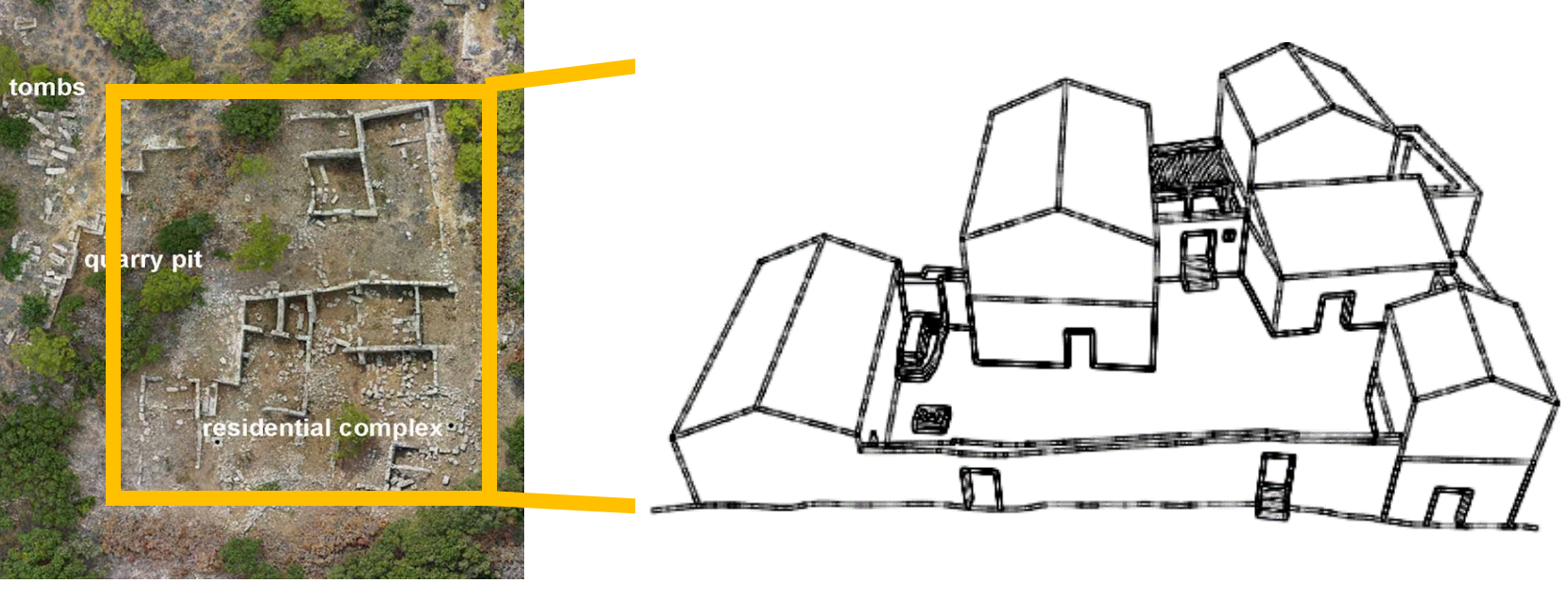Purdue ROSETTA initiative wins one million NSF award to develop AI for reconstructing unexplored archeological sites in VR
The ROSETTA initiative, a Purdue interdisciplinary team science project, won a $1,000,000 National Science Foundation award to build an artificial intelligence-based framework for modeling complex urban constructions from a small number of remote sensing and field observations. The project will use advanced drone technology to surveil the land, which saves time and some situations may replace or minimize archaeological digs, which often destroy parts of the site to reveal its structure.
The winning team is led by Dr. Daniel Aliaga, (Computer Science), and his colleagues Ian Lindsay (Anthropology) and Rajesh Kalyanam (Research Computing). The project includes collaboration with Dr. Steven Wernke (Anthropology) from Vanderbilt University and Dr. Parker VanValkenburgh (Anthropology) from Brown University.
Dr. Aliaga highlights that “unlike dense acquisition of a current city, modeling a historical site, as is done in archaeology, is fundamentally limited to sparse and few data observations. Reconstructions necessitate a novel computational methodology to perform deep generative inference from sparse data.” The project will have a broad impact, as it is both a team science and cyberinfrastructure project. Dr. Kalyanam observes that the cyberinfrastructure is extensible, enhancing the ability of researchers worldwide to contribute to its framework. “The resulting tools and archaeological site datasets will be hosted on popular science gateways such as GeoPACHA and MyGeoHub, which serve the broader digital archaeology and geospatial research communities, respectively. This project not only leverages the advanced Purdue-supported cyberinfrastructure resources provided out-of-the-box by these gateways, but also opens up the possibility for future collaborations and applications involving these existing communities.”

The team will use the infrastructure to create a 3D / VR artificial intelligence (AI) to re-create historical sites from sparse material data, which saves time, and most importantly, the integrity of the site. The project will recreate multiple ancient sites from the late Pre-Hispanic and Colonial-period Andes (e.g., in Peru) and the Bronze/Iron Age periods in the South Caucasus (e.g., in Armenia). A distinctive feature of the technical work is that it seeks a novel approach to produce disentangled generative rules from sparse data. Once the rules are learned they can be used to generate 3D models, to compare historical sites, and to make conclusions about their similarity and inherent relationships; moreover, the developed methods can then be transferred to other domains where the available observations are fundamentally few and far in between. Dr. Lindsay adds that “our hope is that this work will expand humanities/social science applications of satellite and drone-derived remote sensing data, while contributing tools to the growing field of computational archaeology.”
The ROSETTA initiative, funded by the College of Liberal Arts Office of Research, is dedicated to integrating Remote Observation and Sensing in Archaeo-Anthropological Sciences. The ROSETTA initiative was created by the Associate Dean of Research and Graduate Education, Dr. Sorin Adam Matei, as a tool for encouraging a new type of team science in liberal arts research. “Humanities and social science scholars at Purdue are fully engaged in new, cutting-edge research that blends high technology with rigorous methods developed in social and human sciences. ROSETTA is a testimony that this novel approach has reached the stage where it can create breakthrough research.” The ROSETTA initiative is already planning new research campaigns in Greece, Turkey, Peru, and the United States.
PIs:
Daniel Aliaga, Associate Professor of Computer Science at Purdue University
Ian Lindsay, Associate Professor of Anthropology at Purdue University
Rajesh Kalyanam, PhD, Research Scientist, Purdue Research Computing
Steven Wernke, Associate Professor of Anthropology at Vanderbilt University
Parker VanValkenburgh, Assistant Professor of Anthropology at Brown University
ROSETTA funding director: Dr. Sorin Adam Matei, Associate Dean of Research and Graduate Education at Purdue University
Funding: NSF https://nsf.gov/awardsearch/showAward?AWD_ID=2107096&HistoricalAwards=false
Brief summary of methods: The team uses advanced artificial intelligence algorithms to reconstruct archaeological sites that are partially or superficially explored. Using remote drones and satellites, the team maps out the remains as they are still visible, and then uses AI to fill in the gaps and interpolate structures that are still underground. The method eliminates the need to excavate sensitive sites and provides a framework for reconstructing partially destroyed sites.